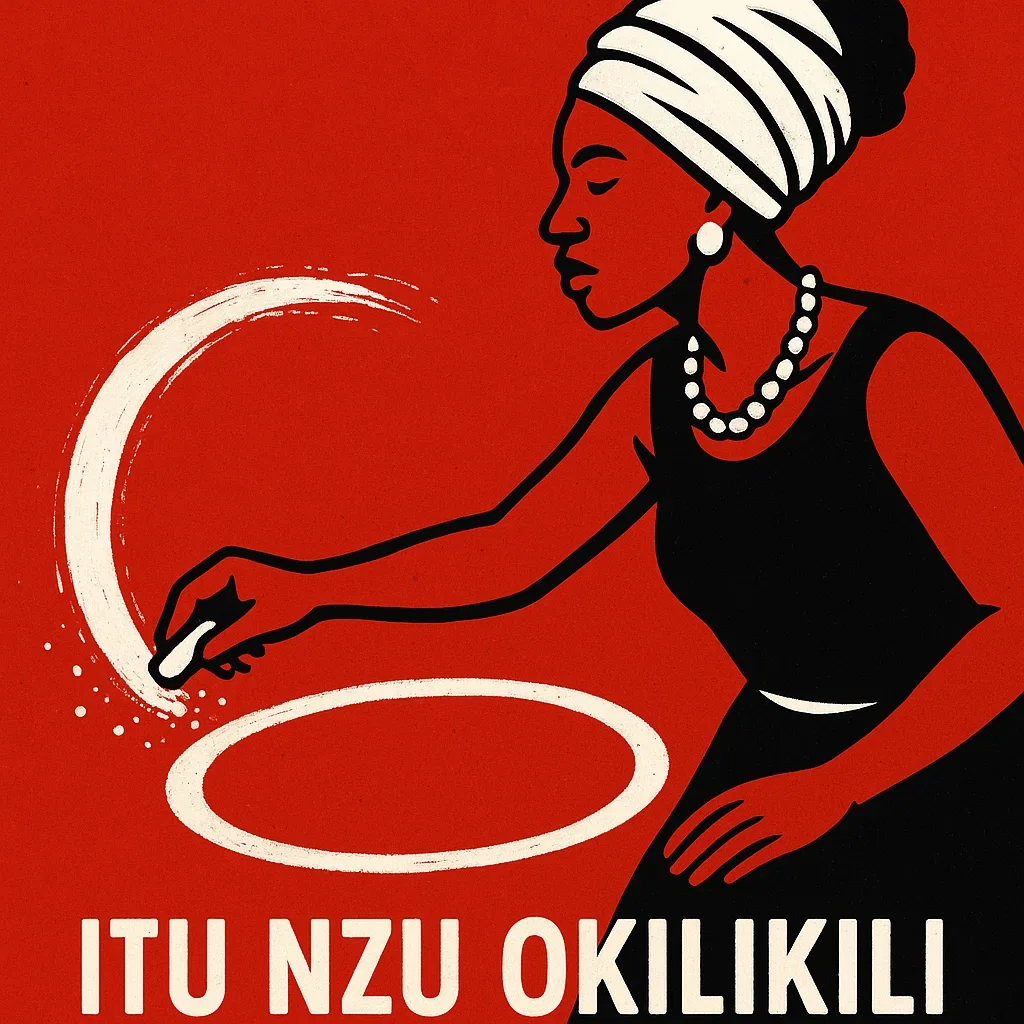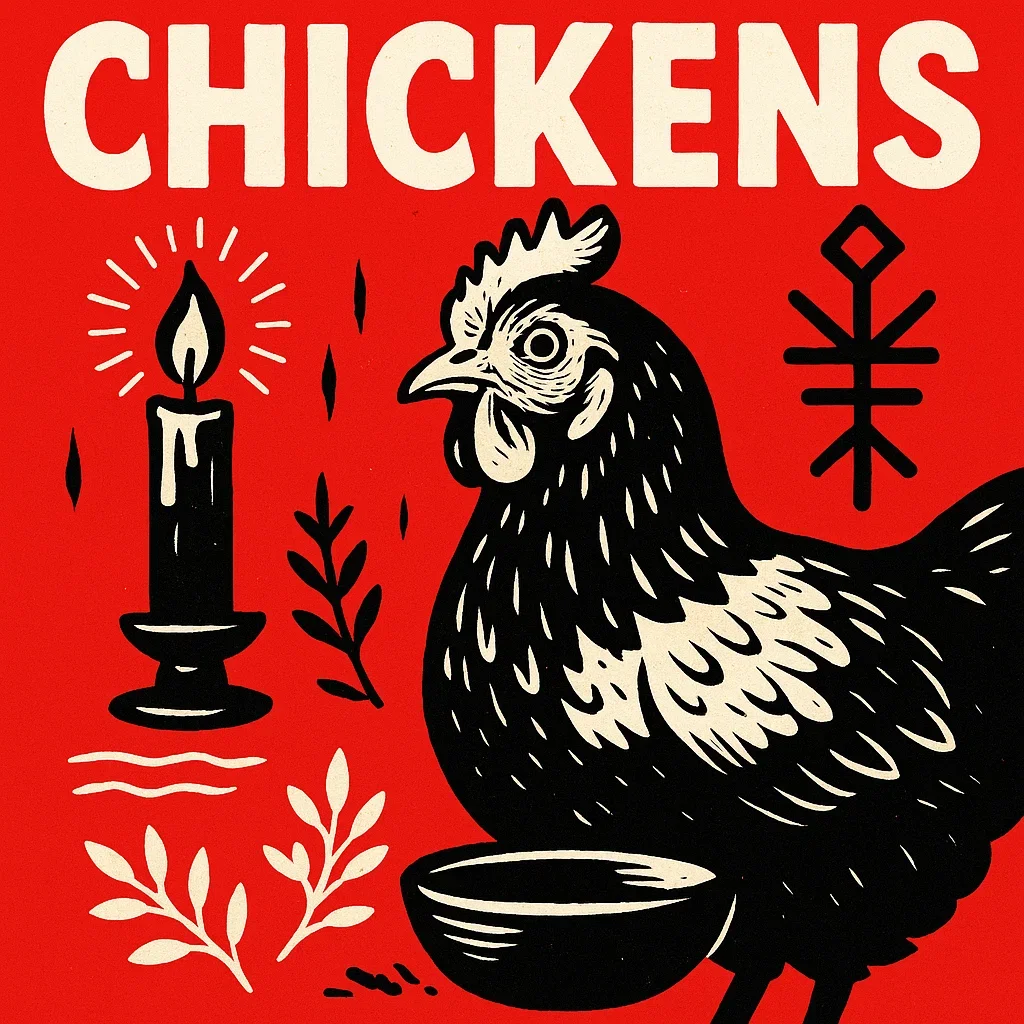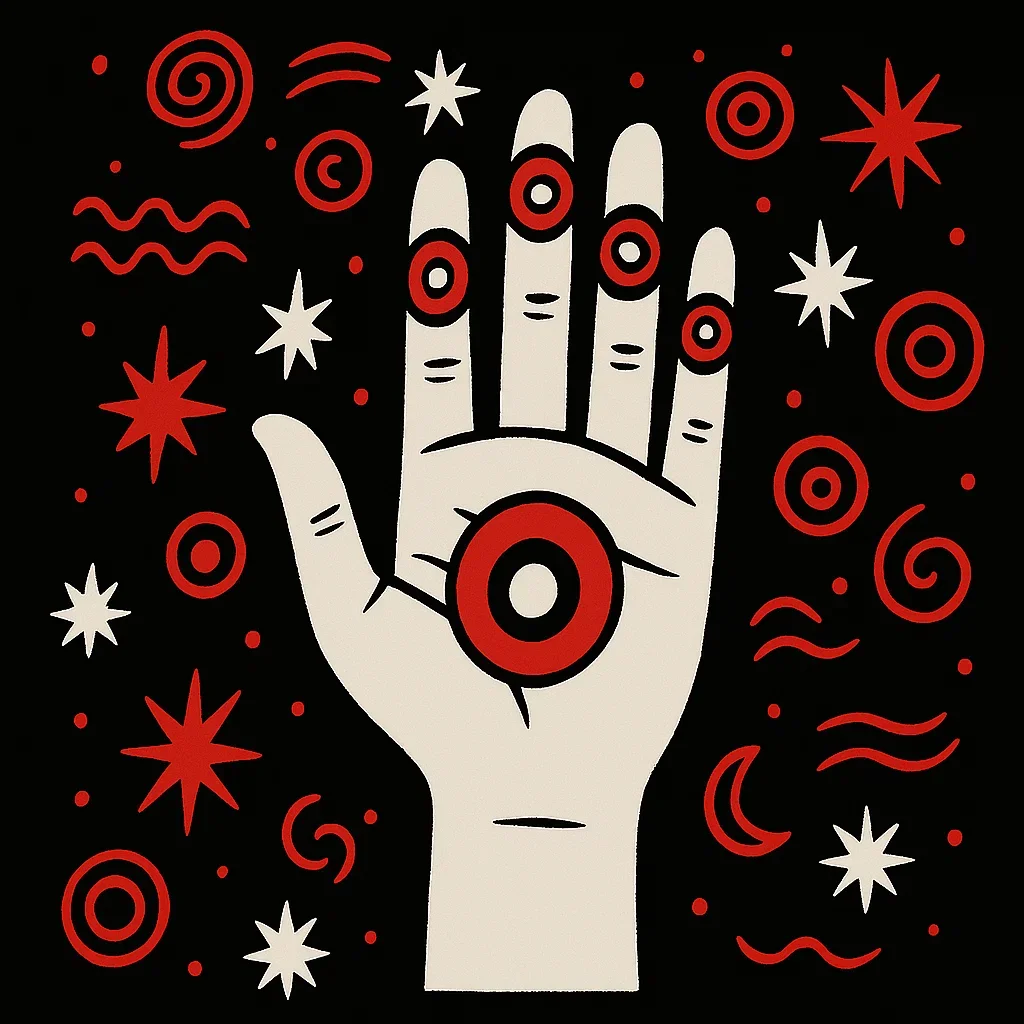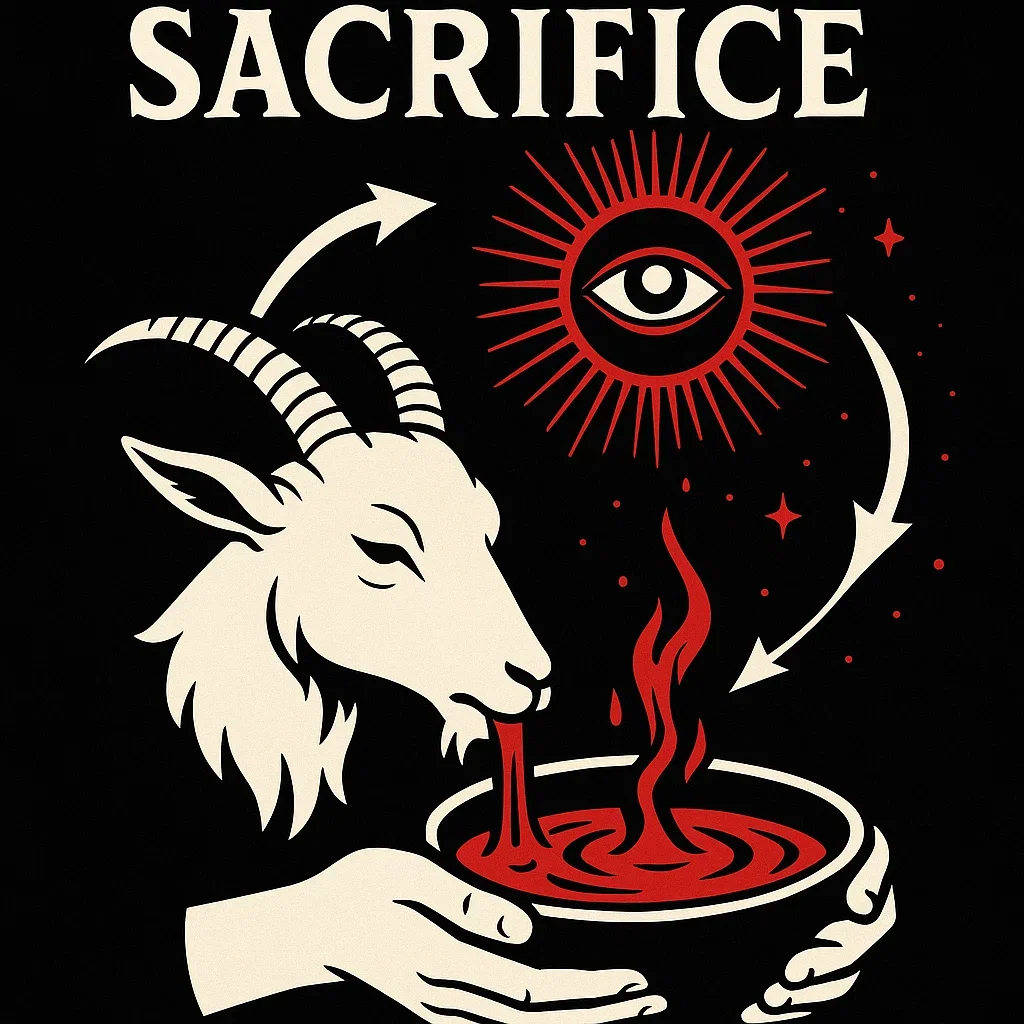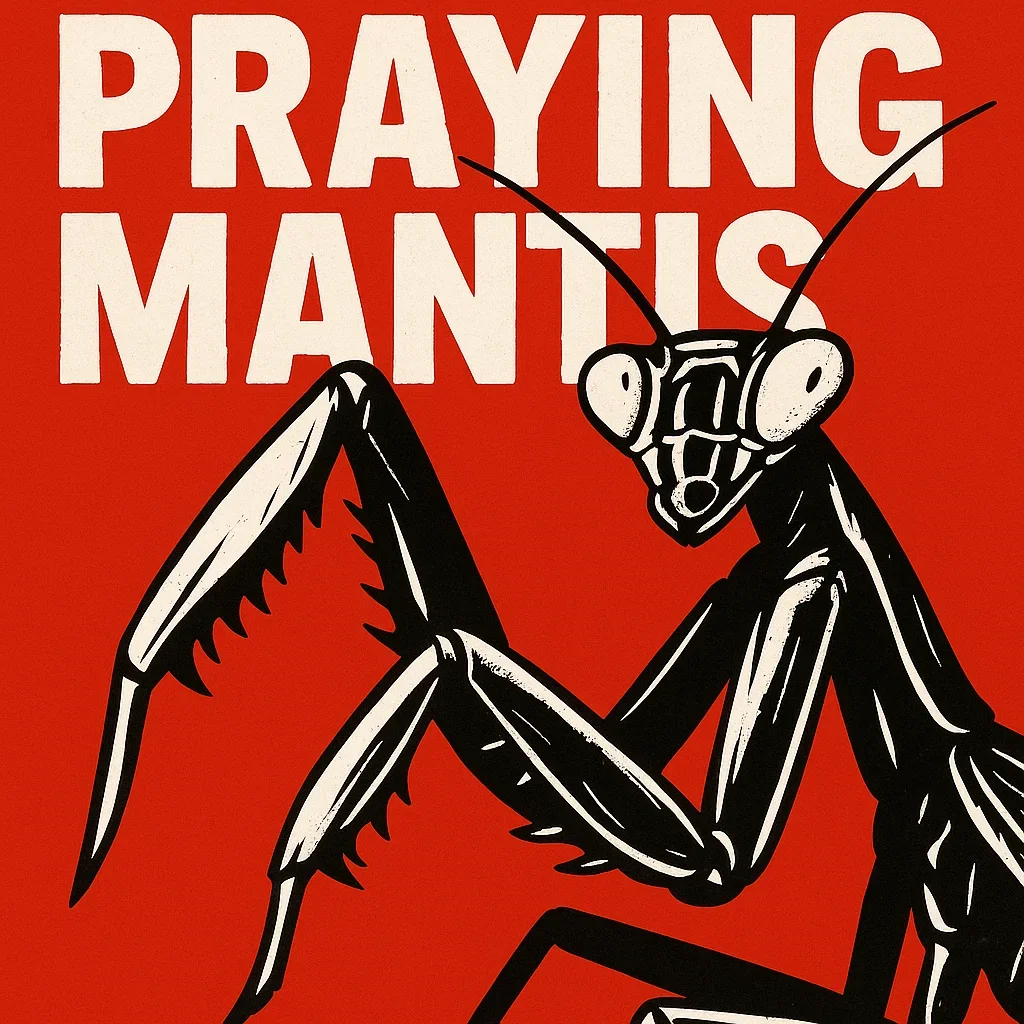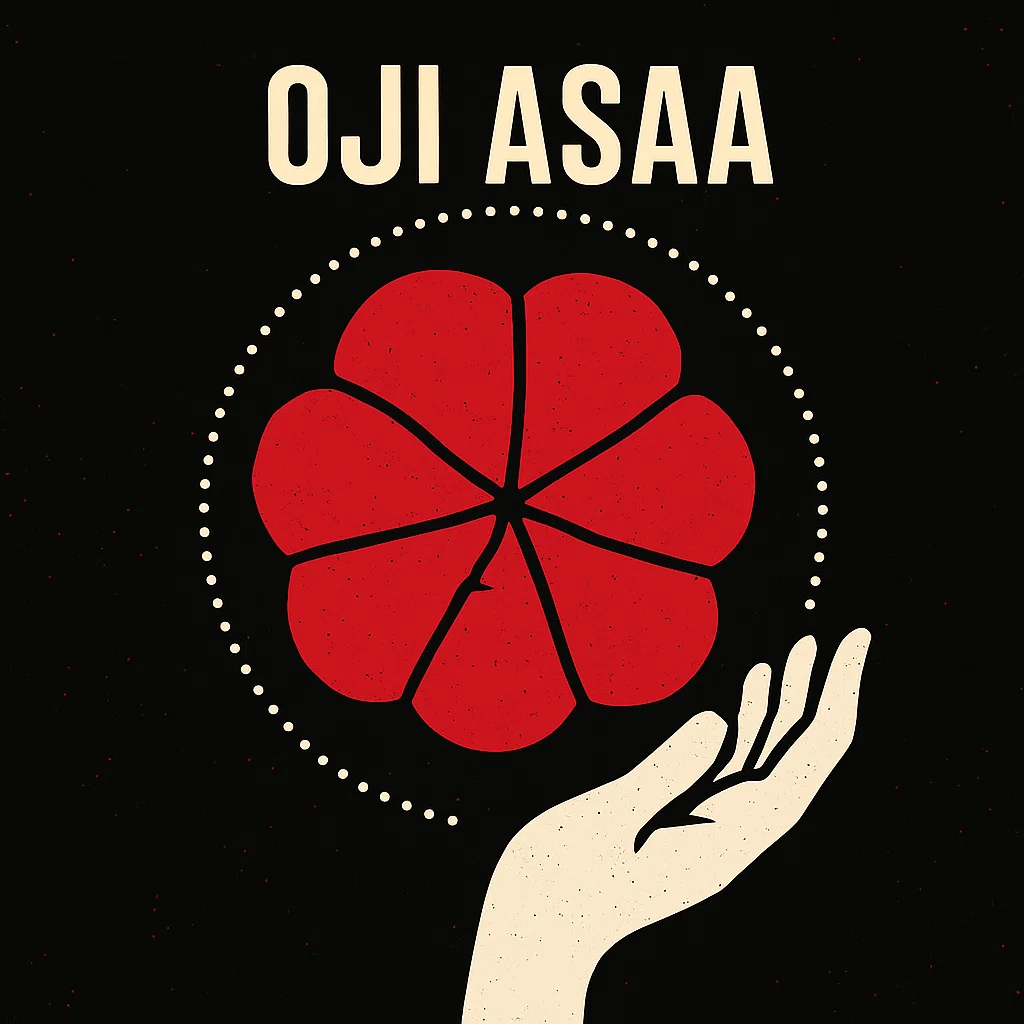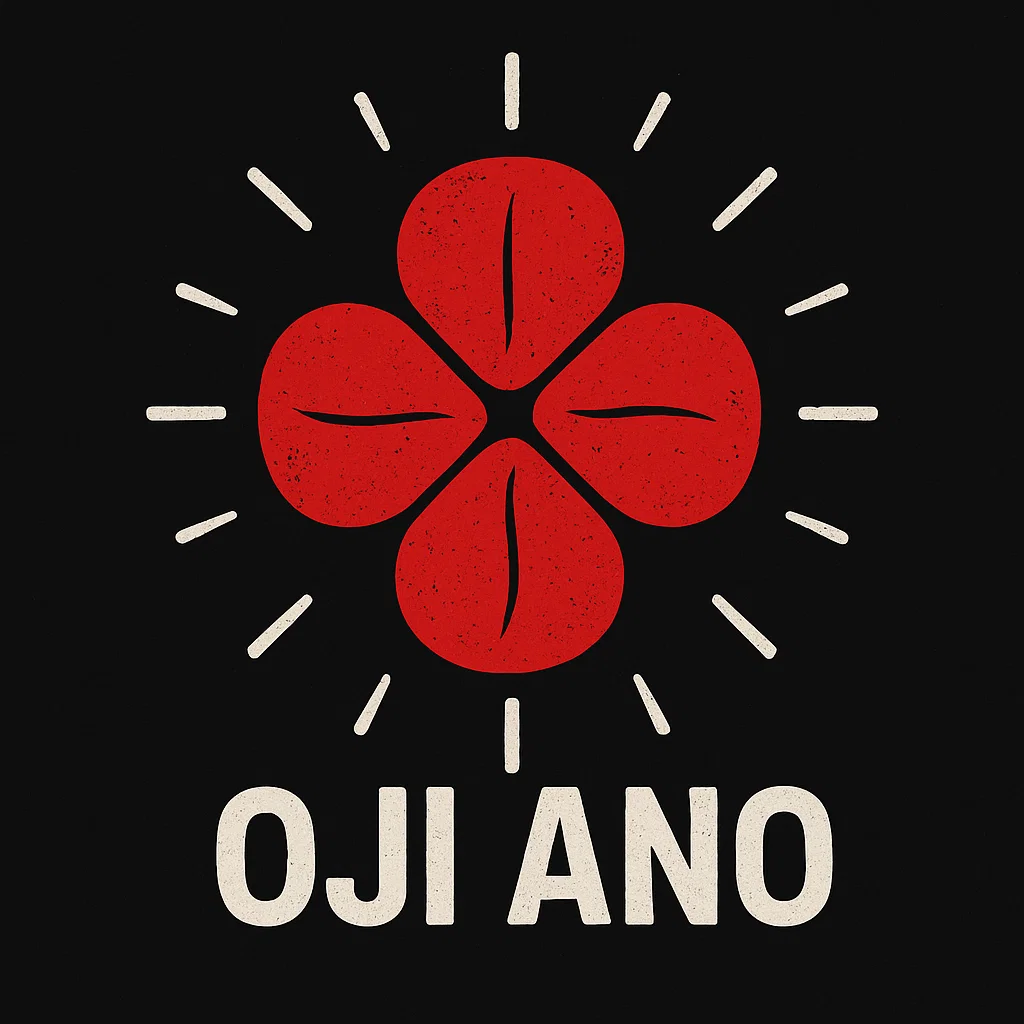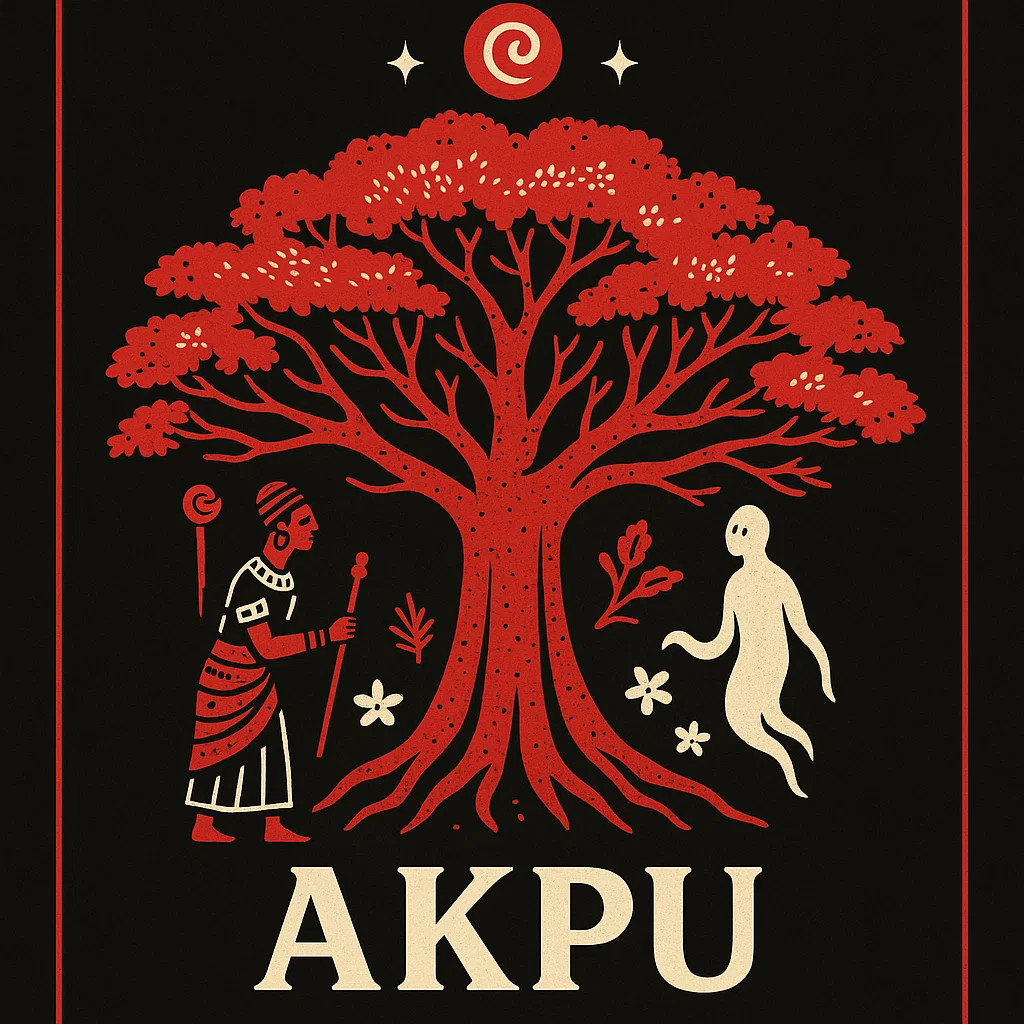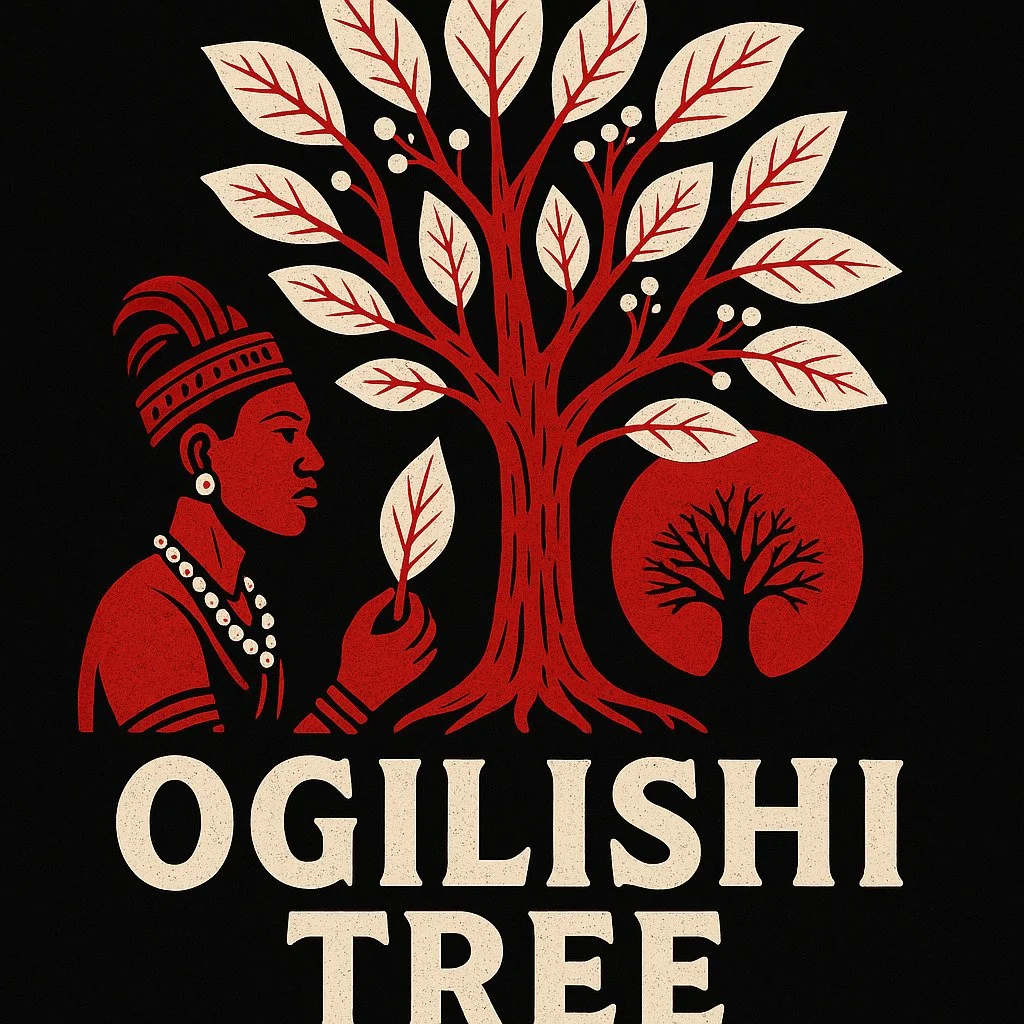Welcome to Faculty of Igbo Traditional Studies!
Explore our growing collection of 100+ exclusive teachings and resources on Igbo cosmology, Igo mmuo, Ezumezu mmuo (Spirit guides), and Odinani rituals.
Search results will show you available teachings organized by category for easier navigation.
Imanye Omu: The Meaning and Power of Planting a Palm Frond in Igbo Tradition
Imanye Omu, fixing a palm frond on something, is a clear way of saying, “This is protected; do not touch.” In Igbo tradition, placing omu on property, land, or any object marks it for special attention and warns others not to interfere. People understand that once the palm frond is fixed, a spiritual force, whether represented by a masquerade or working invisibly, has been called upon to guard the item and respond to anyone who violates the warning. In this simple gesture, the community recognizes ownership, maintains order, and shows respect for both physical and spiritual boundaries. This teaching expands on this idea.
Itu Nzu Okilikili: Why Igbo Women Threw Nzu in Circular Motion
Itu Nzu Okilikili is the simple act of throwing white chalk in a circular motion, but behind it is a meaningful practice in Odinani. When Igbo women performed this gesture, they were marking a space with peace, purity, and order, while simultaneously invoking potent layers of divine feminine energy. The circle signaled protection, calm, and a return to balance. Even without knowing all its layers, watching the act makes it clear that it was more than a routine motion, it was a way of setting the atmosphere, inviting harmony, and reminding everyone that life moves in cycles. The full depth of the practice opens up only when you look closer. This teaching expounds on this practice.
The Symbolism of Chickens as Instruments of Animal Sacrifice
Chickens may appear simple, but their role in ritual is anything but. In traditional spiritual systems like Odinani, the chicken is chosen for reasons far deeper than convenience. It holds a unique place in sacred offerings, tied to energy, intention, and the earth itself. Why this bird, and what exactly does it carry in ritual? The answers in this teaching reveal a profound spiritual logic hidden in plain sight.
The Four Market Days with the Senses, Elements, and Fingers They’re Linked to in Igbo Cosmology
In Igbo cosmology, the four market days, Eke, Orie, Afo, and Nkwo, are cosmic principles woven into the human body through the senses, the elements, and the fingers. This teaching explores that connection in details, and how together, these correspondences reveal the harmony of cosmos and person, teaching that every act of perception is an echo of the eternal rhythm of creation.
Main Factors Behind Animal Sacrifice as a Traditional Method of Propitiation
Animal sacrifice, in its traditional and metaphysical sense, is a carefully calibrated method of energy transmutation. This teaching explores in details how this ancient technique of propitiation, practiced for generations, reveals the immense depth behind what appears on the surface to be a physical act, but is in fact a multidimensional exchange.
The Praying Mantis as a Totem of Ikenga Energy
The praying mantis is a mirror of the disciplined self. With knives-like hands gifted by Chukwu Okike, the mantis moves with divine precision, striking only when success is certain. It is a living emblem of Ikenga energy in Igbo spirituality. This teaching explores what we can learn from the mantis as an Ikenga totem in nature.
Oji Asaa: Significance of Seven-lobed Kola in Igbo Tradition
The seven-lobed kolanut, Oji Asaa, is one of the rarest and most spiritually potent symbols in Igbo tradition. Regarded as the kolanut of perfection, it represents a divine union between the earthly and spiritual realms. Its appearance is seen as a cosmic alignment and a sacred confirmation of total blessing, balance, and favor. Whenever this kolanut is broken, it calls for joyful celebration and gratitude, as it is believed to herald rare fortune, answered prayers, and the presence of ancestral approval.
Oji Ogbugba ndu: Significance of Six-lobed Kola in Igbo Tradition
The six-lobed kolanut, known as Oji Ogbugba Ndu, is revered as the “kolanut of covenant.” It signifies deep communion between the living and the ancestors. With its six lobes — often seen as a double reinforcement of spiritual power — this kolanut is believed to mark divine approval, ancestral presence, and the sealing of sacred ties. In traditional rites, the smallest lobe is never eaten but offered to the ancestors, affirming that life is shared across generations and that the unseen world walks beside the living.
Oji Omumu: Significance of Five-lobed Kola in Igbo Tradition
The five-lobed kolanut, known in Igbo tradition as Oji Omumu, the Kolanut of Increase, is a sacred symbol of fertility, prosperity, and growth. Associated with procreation, productivity, and divine favor, it is revered as a powerful omen of abundance. Its five lobes mirror the human form and the five fingers, representing the completeness of effort and the potential for thriving in life. The appearance of Oji Omumu in any scenario is taken as a sign that the path ahead is blessed with success, expansion, and lasting legacy.
Oji Aka Ano: Significance of Four-lobed Kola in Igbo Tradition
In Igbo tradition, the four-lobed kolanut is a powerful symbol of peace, unity, and spiritual balance. Representing the four Igbo market days (Eke, Orie, Afo, Nkwo) and the cardinal directions of the earth, this kola variety is revered as a sign of divine approval and communal harmony. It is the kola of the people — Oji Ezinaulo — uniting men and women, families and ancestors, in a shared blessing. At weddings, family gatherings, ancestral rites, wherever it shows up, the four-lobed kola affirms the presence of peace, completeness, and ancestral alignment.
Snail as Spirit Animals & Guides in Igbo Traditions
In Odinani, the snail is a divine messenger. Its spiral shell, ever-expanding from within, reflects the cosmos itself: unfolding, eternal, and ordered. Snails symbolize the soul’s protected journey through death and rebirth, their shells worn as amulets to guard life’s transitions. To walk with the snail as a spirit guide is to learn patience as power, stillness as wisdom, and protection as a birthright. It teaches us to carry our spiritual home within, to move forward without rushing, and to trust that all things unfold in divine time.
Akpu Tree in Igbo Tradition and Spirituality
Akpu tree, known botanically as Ceiba pentandra, is a sacred tree in Igbo cosmology. Revered as a tree of fertility, protection, and ancestral presence, Akpu is believed to bridge the physical and spiritual worlds. From its use in healing and food to its deep role in rituals, divination, and community justice, this living shrine embodies the union of nature and spirit. With its role ranging from sheltering sacred groves, hosting the spirits of unborn children, to standing guard as a mystical protector, Akpu tree remains a significant symbol of life, continuity, and divine order in Igbo spirituality.
Ngwu Tree in Igbo Tradition and Spirituality
In Igbo spirituality, Ngwu tree is viewed as a sacred being, in some cases even as an alusi (deity) that embodies ancestral wisdom, spiritual protection, and divine authority. Found near shrines and family compounds, Ngwu is never planted by hand; it is believed to choose where it grows, marking that place as spiritually potent. Traditionally linked to healing, justice, and the Agwu mystical current, Ngwu is both a guardian and a judge used in oaths, ancestral rites, and fertility rituals. This teaching explores the Ngwu tree’s roles in medicine, land boundaries, ritual justice, and reincarnation, revealing how it stands at the crossroads of earth and spirit in Igbo cosmology.
Ogilishi Tree in Igbo Tradition and Spirituality
In Igbo tradition, Ogilishi tree (Newbouldia laevis) is a sacred tree which acts as a symbol of life, healing, and spiritual power. It is used by Dibia for its powerful medicinal properties and revered in rituals for protection, purification, and communication with the ancestors. Also used for marking ancestral land, healing the sick, and warding off malevolent forces, this “tree of life” embodies the Igbo philosophy that nature is not separate from the sacred, but a direct conduit of divine presence and ancestral wisdom.
Tortoise and Turtle as Spirit Guides in Igbo Traditions
In Igbo spiritual tradition, the tortoise and turtle are ancient guides, protectors, and keepers of sacred wisdom. Symbolizing patience, resilience, protection, and divine timing, these spirit animals bridge the earthly and spiritual realms. In Igbo folktales the turtle/tortoise appears as a steady reminder to move with purpose, honor ancestral truths, and trust the unfolding of life. This teaching explores the deep spiritual guidance these beings offer, and why their wisdom is more relevant now than ever.
Oji Ogbi: The Significance of One-Lobed Kola in Igbo Tradition
In Igbo tradition, the significance of kola nuts vary according to the number of lobes they have. Among them, the rare Oji Ogbi, the one-lobed kola nut, stands apart as a sacred anomaly. This Oji gbara otu is never eaten, only revered. Believed to belong solely to Chukwu, the Supreme Spirit, its appearance is seen as a powerful omen. This teaching explores the deep cultural and spiritual significance of Oji Ogbi.
Eke: The Python as a Spirit Guide in Igbo Traditions
Revered in Igbo spiritual traditions, Eke—the python is a powerful divine feminine symbol of fertility, ancestral wisdom, transformation, and divine presence. It appears as a guardian, a guide, and a sacred embodiment of the life force. This teaching explores the deep spiritual meanings of the python and its role as a bridge between the physical and spiritual realms.
Oji Ikenga: The Signficance of Three-Lobed Kolanut in Igbo Culture
In Igbo spirituality, the three-lobed kolanut, known as Oji Ikenga, is associated with the spirit of Ikenga, the force of willpower and masculine energy, this unique kola nut configuration is revered in rituals, blessings, and ancestral offerings. Regarded as the first truly positive omen among kolanuts, Oji Ikenga embodies Igbo reverence for spiritual balance, action, and ancestral guidance. This teaching explores its cultural and metaphysical significance.
Oba Mmiri: The Crocodile as a Spirit Guide in Igbo Traditions
In Igbo traditions, Agu Iyi—the crocodile is a powerful spiritual guide, revered as a symbol of protection, ancestral presence, and primal wisdom. From sacred lakes in Igbo land, the crocodile bridges the realms of the living and the divine in Igbo spirituality. This teaching explores the rich spiritual meanings behind the crocodile’s presence in ritual, dream, and mythology, offering timeless lessons on strength, patience, and sacred guardianship.
Nkita: The Dog as a Spirit Animal and Guide in Igbo Traditions
Across Igbo spiritual traditions and mythology, the dog is seen as a loyal companion, it is a powerful symbol of protection, ancestral guidance, and deep intuition. In Igbo cosmology, the dog stands at the threshold between worlds, guarding the living, guiding the dead, and sensing the unseen. This teaching explores the rich spiritual meanings of the dog as a spirit animal and how its presence continues to offer wisdom, protection, and connection across the realms.




